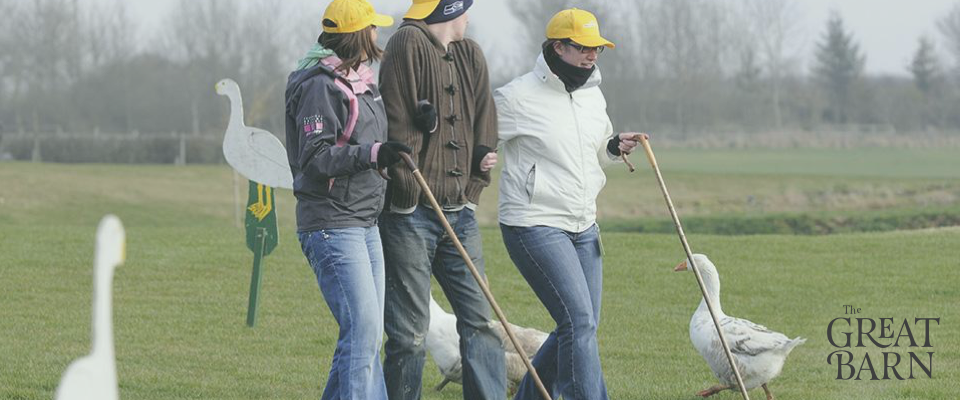
It might be a cliché to say, but as we emerge from the pandemic, events are very much back on the agenda. Whilst digital communication technology has enabled the world to carry on working, people are realising that there’s no substitute for an in-person event.
With that in mind, now seems like a good time to revisit a couple of fundamental questions; what are corporate events and why are they so important?
On the surface, the answer to each of these questions might seem obvious, however when you get stuck into the process of planning and executing events, the importance of getting it right becomes clear. Companies need to justify every investment they make, so if you’re going to spend money putting on an event, it pays to take care of the fundamentals.
What does corporate event mean?
A corporate event is any event held by a company or organisation designed to reach and communicate with an audience that can be made up of employees, customers, potential customers, beneficiaries, the media or all of the above.
Corporate events can be small team away days or they can be large conferences or product launches.
Why are corporate events important?
Corporate events are important because they are a well tested method of reaching and communicating with an audience you’ve selected. When considered as a part of your marketing communications toolbox, they offer a different flavour to digital communications.
The advantage of digital communications channels is that they enable you to reach a wide, disparate audience. They are strong in reach, but weak in focus because attendance doesn’t require much attention on the attendees part.
Corporate events (of the in-person variety) are less wide reaching because your audience physically needs to turn up. They are, however, a much more engaging form of event and an effective way to immerse your audience in whatever it is you’re trying to do. Think of a corporate event as an opportunity to put on a show; it’s the difference between streaming a show and putting on a theatre performance. Both have their place, but one will live longer in the memory.
Corporate events ideas
This is what we specialise in. We’ve hosted all sorts of events for companies. We’ve had companies come to us for team away days and we’ve hosted conferences and product launches.
The most common event types are as follows:
- Team away days & activity days
- Company presentations
- Company meetings
- Conferences
- Corporate parties and dinners
- Product launches
These are all self-explanatory, however, we also specialise in putting on some amazing activities.
Corporate events activities

There are many activities to choose from, so rather than list them all out, here are some of our favourites:
Rage buggies - how often do you get to scream around the British countryside in an off-road buggy? Not very often is probably the answer. When creating a memorable day is your goal, you can’t go far wrong with rage buggies.
Duck herding - there are lots of ways to build a team bond, but few of them are as memorable and humorous as a spot of duck herding. You’re probably familiar with sheep herding, this is the same, just with ducks instead of sheep!
Conference & activity day - the best corporate events provide variety, so here we’ve put together a sample itinerary of what a conference plus activity day would look like. Trust us, it beats sitting in the company boardroom listening to a brief.
What are the different types of corporate events?
Planning a corporate event based on a specific audience? Here are some thoughts to help you get started.
Corporate events for team building
Team building is one of the most popular types of events we run at The Great Barn. From treasure hunting to our own version of TV’s Crystal Maze, team building events are designed to bring the members of your team together.
Take a look at our team building events here.
Corporate events for clients
Looking to impress your clients? There are a couple of routes you can take:
- Formal client event
- Informal client entertainment
On the formal side, a conference, product launch, dinner or mixture of all of these is the way to go. Find an impressive venue and make sure that the venue speaks the right language; what we mean by this is to make sure it matches the tone of your brand.
On the informal side, why not consider team building events to be shared by you, your team and your clients. The best client relationships work like a friendship, so it stands to reason that team building with the wider client team is an effective strategy.
Corporate events for large groups
Large group means large venue. Planning for the summer months requires a venue with outside space whilst a winter event requires large indoor space.
It’s trickier to organise large groups of people, so take the following approaches. The first is to host an organised, sit-down event. Think of it like putting on a show where the audience can passively watch.
The second approach is to put on an ‘experience’. This works well for product launches where a short presentation precedes an opportunity for attendees to set their own agenda. Give your audience space to move around, interact with your product and speak with other delegates.
Corporate events for employees
Company presentations are the most common scenario with groups of employees. All too often, companies will deliver updates to their employees in the same meeting room in the same way every month/quarter/year.
Smart companies do things differently. If your company presentation is trying to effect change, consider hosting it in new surroundings. The very act of getting out of the office helps employees to see things differently.
Corporate events for families
Family days are great fun. They are an effective way to break down barriers in your team and to get everyone to show off their ‘non-work-side’. Set a flexible arrival and end time, have food available all day and have activities that attendees can pick up and put down. Don’t be rigid and you’ll be onto a winner.
How much do corporate events cost?
As it happens, we’ve just tackled this topic in another post on our website.


